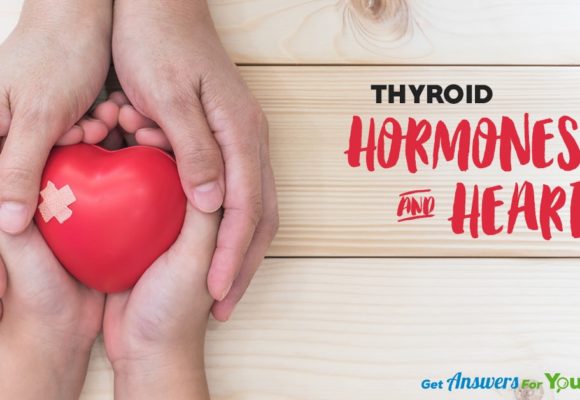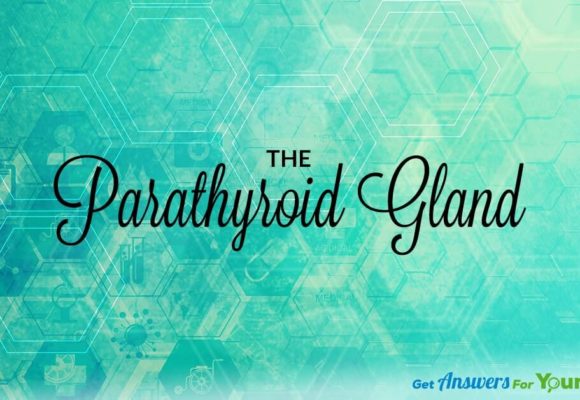1) Grab a FREE copy (Value $14.95) of one of my books Thyroid Symptom Overload
Just pay shipping $7.95 for any US orders. Or, if you want to pay full price plus shipping, order from Amazon :)
2) Take our Thyroid Quiz today and find out what "Thyroid Type" you have
This quiz will help you quickly discover where your symptoms are stemming from.
3) Join Our Thyroid Advocate Membership Site - Natural Thyroid Academy
FREE for a limited time. No credit card required.
4) Work with me and my team privately
Schedule your FREE 15 minute phone consultation and we can find out the best way to help you specifically.
You may have heard that too little physical activity can make you fat. However, even if you are physically active, but your metabolic activity is impaired, you will gain extra pounds.
Obesity is not related only to consuming extra calories or engaging in less frequent exercise. It is one of the most prominent and troublesome symptom of hypothyroidism. Nevertheless, whatever the cause of obesity, the main culprit causing weight gain is failed metabolism (inability to burn the calories).
What Is the Thyroid Gland?
The Thyroid Gland is a large, ductless, butterfly shaped organ present at the base of your neck. Located in the anterior neck, under the layer of skin and muscles, this gland is very important for the regulation of normal body functions. The thyroid gland regulates and controls the rate of metabolism which further affects two other body functions i.e. growth and development.
It might seem this organ, responsible for basic functioning, may not influence the body much. However, this is not the case. If working properly, the thyroid gland is a highly functional organ.
In contrast, normal mechanisms of the body are greatly impaired if the thyroid gland doesn’t function effectively. There are two conditions that may be caused by the improper function of the thyroid gland (or indirect cause of decrease in thyroid hormones levels).
- Hyperthyroidism:
This is the condition in which the thyroid gland is over active and produces too much thyroid hormone. This causes the metabolism rate to increase at an unhealthy rate and cause weight loss, along with the heart palpitations, heat intolerance, insomnia, fatigue and diarrhea.
- Hypothyroidism:
This is the condition in which the thyroid gland is under active and produces too little thyroid hormones. Due to this, the metabolism slows down resulting in weight gain. The other symptoms include extreme fatigue, cold intolerance, constipation, sexual dysfunction, and decreased heart rate.
Effects Of Hypothyroidism:
“Hypothyroidism can affect your metabolism, mental functioning, energy level and bowel movements. Depending on how low your thyroid hormone production drops, your symptoms may be mild to severe”, says Jill Eisnaugle.
Hypothyroidism can also lead to slower and weaker heart rate which makes the heart less efficient at doing its job of pumping blood. This condition also leads to constricted arteries that can further raise blood pressure. In this situation, a person tends to get short of breath even after minimal activity.
Along with that, there are also many other symptoms that may seem like a routine thing. These include fatigue, weakness and constipation. It is very hard to judge from these effects (symptoms) if the thyroid hormone production is low. For this, blood tests have to be conducted frequently to check the thyroid hormones level in blood. The two hormones produced by the thyroid are:
- Thyroxin (T4)
- Triiodothyronine (T3)
What Causes Weight Gain In Hypothyroidism?
Metabolism is the process of the catabolism (break down) and anabolism (synthesis of products) in the body. Both require and generate energy.
Since the thyroid gland secretes hormones to regulate the metabolism, if the gland is not working properly, metabolism slows down. This is what happens in hypothyroidism. Basically, the underproduction of thyroid hormones results in the deficiency of T3 and T4 in the body. This deficiency, in turn, causes the metabolic system to slow down. Weight gain occurs as a result. It is one of the many symptoms associated with an underactive thyroid gland.
The body solely produces energy through metabolism. Energy is basically driven by breaking down the food that we eat or by burning up the reserve fats and sugars. If no or very little metabolic processes are occurring in the body, it means that the food is not being broken down. This food accumulates in the body and causes obesity or weight gain. Since the basal metabolism rate is lower in such cases, patients suffering from hypothyroidism also have much more difficulty losing weight.
Weight gain is therefore specifically associated with an underactive thyroid. This results in the slowing down of your metabolic rate which equals lower calorie usage.
Complications Of Hypothyroidism Associated Weight Gain:
Weight gain or obesity is the road that can lead to many diseases. Illnesses caused by weight gain may be chronic or acute. Some of the more dangerous diseases that can be caused by this weight gain are high blood pressure, diabetes, stroke, and coronary artery or vascular diseases. Therefore, there is an urgent need to address the hypothyroidism associated weight gain.
- Vascular Diseases:
Hypothyroidism already causes the arteries to constrict. With weight gain, the situation becomes worse. Weight gain associated with hypothyroidism contributes significantly to the coronary artery disease. This means a person can be at a high risk of having blocked arteries. Obstruction in the arteries stops proper blood flow to the body which subsequently means that the cells are not getting enough oxygen.
- Heart Disease:
Hypothyroidism and weight gain contribute in a big way to the heart disease. These two correlated disorders lower the efficiency of the heart to pump blood around the body. In other words, the cells do not get enough oxygen. This is further enhanced by increased cholesterol levels. Since hypothyroidism slows down metabolic rates, cholesterol is not used in metabolic functions like synthesis of hormones or cell membranes etc.
“Too much cholesterol can cause plaque formation on the lining of blood vessels. Over time, this creates a narrowing that can cause heart attacks or strokes”, write the writers from Arizona State University. Adding to the plague formation, decreased blood supply further comprises the oxygenation of heart muscles. Thus, chances of heart diseases escalate significantly.
- Diabetes Mellitus:
Weight gain also results in a hazardous disease known as Diabetes Mellitus. This disease is caused due to high levels of blood glucose. Since, there is a decrease in levels of thyroid hormones and consequently the metabolic rate; the blood sugar levels remain high.
Arizona State University writers say, “Diabetes can be associated with serious complications and premature death”. Thus, it is a pressing concern for the patients suffering from hypothyroidism.
- Hypertension:
Hypothyroidism and weight gain can also cause high blood pressure. Weight gain can make it difficult for patients to breathe properly. They also experience fatigue after little activity.
How To Manage Weight Gain Associated With Hypothyroidism:
It might seem impossible but with a little will power and proper techniques, it is possible. Losing weight is very hard and frustrating for patients with hypothyroidism. By adopting a few lifestyle behaviors, you can surely succeed.
Management through diet:
- To control weight, the most important modification you can do is to make changes in your diet. How you consume your diet depends on the patient’s unique physiology and ability to absorb nutrients. Therefore, the recommendation vary from one person to another. Generally, it is important to cut down the consumption of foods that slows down the rate of thyroid. These include food items like some vegetables including kale, spinach and broccoli.
- Secondly, gluten consumption may cause more problems. So, you must avoid eating gluten in your diet. Go for foods that do not have gluten or any wheat based products. Lower hormone levels means increased glucose levels in blood. For this, it is important to eat foods with limited amounts of carbohydrates and sugars.
- Additionally, it is essential to follow a diet with foods that do not cause inflammation. These include omega 3 fats which have anti-inflammatory properties. Also, make sure to eat raw and natural foods. Patients suffering from hypothyroidism should avoid processed foods or food with additive sugars. Your diet must consist of whole foods which are low in sugar.
Intermittent Fasting:
- Intermittent fasting is the process of scheduling your eating habits. Make a timetable in a way that you eat for a particular time of the day and leave the window of time closed for eating in other parts of the day (when you are fasting). In this way, the body gets ample time to digest the food and process it.
- The scheduled timings could be different from person to person. Following an intermittent fasting diet can help people with hypothyroidism lose weight.
- If none of this works, the patient should consult a specialist in nutrition and get tested for any diet that he or she may be allergic to. Common food sensitivities may be dairy products, soy, nuts and can include certain fruits.
Treatment and Exercise:
- For some patients, the inability to lose weight may lie in the improper treatment that is not optimized according to the patient’s needs. Most importantly, the longer you take to initiate your hypothyroidism treatment, the more weight you can gain. This is an inevitable dilemma since thyroid issues are not easy to detect as they show very common symptoms, like weakness and constipation. Your metabolism slows down progressively, which means lesser calories are being burned every day. This, in turn leads to obesity.
- For weight loss, you need to exercise more than what normal people have to do according to their weight. According to experts, a normal person needs to do 30 minutes to 1 hour of exercise every day to stay healthy. Obviously, a patient suffering from hypothyroidism will need more work than that. Opt for Pilates, walking, weight lifting or other forms of exercise that you may find effective. For best metabolic benefits, go for exercises that require much energy and also build up muscles. Burst training or Tabata training may be appropriate.
Conclusion:
In conclusion, weight gain is inevitable with hypothyroidism. The best way to counteract this issue is early detection. This should then be followed by a well-regulated diet plan and regular exercise regimen. Always consult your physician before starting anything new because hypothyroidism can also lead to other issues that you may not be aware of.
References
- verywell.com
- The Effects of Hypothyroidism on the Body , healthline.com
- The Health Orange
- What can Obesity Lead to, asu.edu








